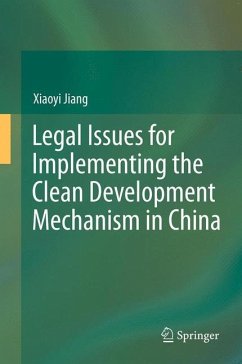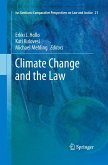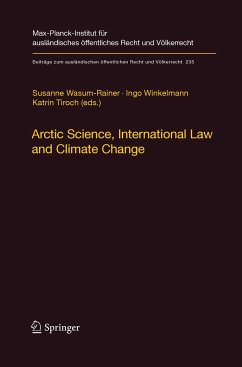Today, climate change is among the most hotly-debated topics worldwide. The Clean Development Mechanism (CDM), one of the three financial mechanisms under the Kyoto Protocol open to developing and developed countries, was devised to assist in mitigation of global warming. Since it was initiated, thousands of CDM projects have been carried out. China, in particular, with its large carbon emission potential and favourable investment environment, has dominated the global carbon market through participating in CDM projects and has become the largest beneficiary.
Despite significant benefits the CDM has brought to China, many barriers and problems are still encountered in the practical implementation of CDM projects. Moreover, as the first Kyoto period is set to expire in 2012, China, as a major emitter and developing country, will play a crucial role in combating global warming in the post-2012 period. Therefore, it is expected to take on more reduction responsibilities and thus will be under considerable pressure to reduce carbon emissions without undermining its economic development. Against this background, it is also of great significance to discuss how the CDM contributes to promoting sustainable development in China and helps to meet the challenges of global warming and emission reductions in the post-2012 period.
The central aim of this book is to discuss what China should do to make full use of the CDM to promote sustainable development and to meet the challenge of climate change from a legal perspective. It should be noted that this study focuses on the legal aspect of implementing the CDM in China in spite of the importance of other aspects that may influence the success of the CDM. First, how the CDM contributes to sustainable development in China is explored on the basis of the current situation of CDM projects. Following this, the existing barriers and problems encountered in the practical implementation of CDM projects are identified, based on a field work study. Finally, how the CDM would contribute to assisting China in dealing with climate change beyond 2012 is analyzed. Based on these analyses, the thesis comes to a conclusion that the CDM has limitations in promoting sustainable development in China and thus should be regarded only as a complementary instrument in combating climate change. Legal strategies for improving the implementation of CDM projects under the legal framework in China are thus put forward and some proposals for China to meet the challenge of climate change in the post-2012 era are made.
With a view to successfully addressing the topic in this book, interdisciplinary research methods covering many subjects like legal research, pragmatic approach, empirical research, statistical analysis and economic perspective, are applied.
Discussing legal aspects of the CDM in China, this book offers new insights to academics and policymakers both in the public and private sector. Those insights are not only relevant for understanding the past, but moreover for guiding the future design and implementation of the CDM. Therefore, this book is intended for legal practitioners and researchers on carbon trading under the Kyoto Protocol as well as policymakers interested in the role of developing countries in climate change law. In addition, it is of interest to stakeholders of CDM projects. Furthermore, it would be most attractive to the postgraduate learning Chinese law, energy law and law of climate change and MBA marketplaces.
Despite significant benefits the CDM has brought to China, many barriers and problems are still encountered in the practical implementation of CDM projects. Moreover, as the first Kyoto period is set to expire in 2012, China, as a major emitter and developing country, will play a crucial role in combating global warming in the post-2012 period. Therefore, it is expected to take on more reduction responsibilities and thus will be under considerable pressure to reduce carbon emissions without undermining its economic development. Against this background, it is also of great significance to discuss how the CDM contributes to promoting sustainable development in China and helps to meet the challenges of global warming and emission reductions in the post-2012 period.
The central aim of this book is to discuss what China should do to make full use of the CDM to promote sustainable development and to meet the challenge of climate change from a legal perspective. It should be noted that this study focuses on the legal aspect of implementing the CDM in China in spite of the importance of other aspects that may influence the success of the CDM. First, how the CDM contributes to sustainable development in China is explored on the basis of the current situation of CDM projects. Following this, the existing barriers and problems encountered in the practical implementation of CDM projects are identified, based on a field work study. Finally, how the CDM would contribute to assisting China in dealing with climate change beyond 2012 is analyzed. Based on these analyses, the thesis comes to a conclusion that the CDM has limitations in promoting sustainable development in China and thus should be regarded only as a complementary instrument in combating climate change. Legal strategies for improving the implementation of CDM projects under the legal framework in China are thus put forward and some proposals for China to meet the challenge of climate change in the post-2012 era are made.
With a view to successfully addressing the topic in this book, interdisciplinary research methods covering many subjects like legal research, pragmatic approach, empirical research, statistical analysis and economic perspective, are applied.
Discussing legal aspects of the CDM in China, this book offers new insights to academics and policymakers both in the public and private sector. Those insights are not only relevant for understanding the past, but moreover for guiding the future design and implementation of the CDM. Therefore, this book is intended for legal practitioners and researchers on carbon trading under the Kyoto Protocol as well as policymakers interested in the role of developing countries in climate change law. In addition, it is of interest to stakeholders of CDM projects. Furthermore, it would be most attractive to the postgraduate learning Chinese law, energy law and law of climate change and MBA marketplaces.








